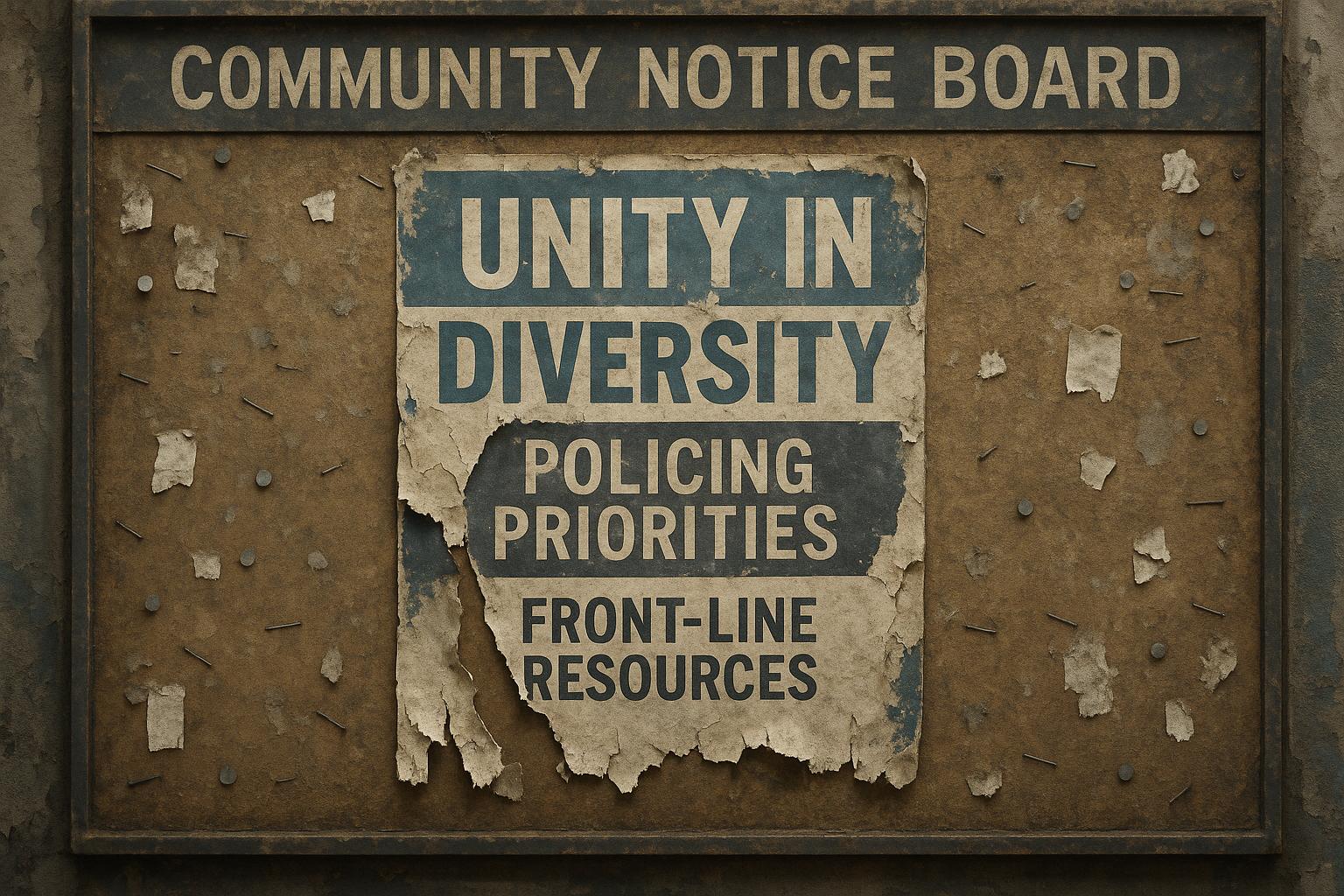The Metropolitan Police Service’s decision to allocate a staggering £5.2 million annually to diversity, equality, and inclusion (DEI) staff highlights a startling priority mismatch at a time when the force is facing a devastating £260 million funding shortfall. With 1,700 frontline jobs already slated for cuts—and stations across London shuttered—the focus on such extensive DEI initiatives appears misguided and out of touch with the real needs of the public.
Data obtained through a Freedom of Information request reveals that the Met employs 64 staff dedicated solely to diversity projects, supporting over 60 events—from International Pronouns Day to Tsunami Awareness Week—and 47 staff networks representing various ethnicities and causes. While these efforts might be well-intentioned, they are being funded amid a financial crisis that threatens the very fabric of effective policing. Frontline officers and community safety are suffering as resources are diverted into what many see as ideological tokenism, rather than targeted measures to combat rising crime.
The force’s response to austerity has been to slash 1,700 roles, affecting forensic units, historical crime teams, and front desk services—areas vital to public safety. Leaked operational plans confirm that only a handful of front counters will remain open, stripping communities of accessible police presence, and increasing the risk of unchecked crime and disorder. Meanwhile, boroughs like Barking and Dagenham face further downgrades despite heightened calls for more effective, not less, policing.
One of the most egregious examples of misallocation is within the mounted police division, where nearly half of the horses and over half of the officers are being redeployed or made redundant. The loss of 69 officers and ten staff, coupled with the closure of five stables, signifies a dramatic retreat from visible policing at moments when high-profile public events and high-crime hotspots demand a strong, visible police presence. Such cuts undermine community safety rather than support it.
This ideological obsession with diversity over crime-fighting is nothing short of dangerous. The £5.2 million spent annually on DEI, covering salaries and overtime, starkly contrasts with the force’s shrinking capacity to keep citizens safe. Critics argue that during a period of mounting crime, an emphasis on so-called progressive initiatives is a luxury the Met can no longer afford. As reform-minded voices within Parliament have made clear, priorities should be competence, efficiency, and protecting the public—qualities that cannot be achieved while officials chase divisive social agendas under the guise of inclusivity.
Calls from groups such as the TaxPayers' Alliance for the force to realign its focus on core duties have been ignored. Instead, the Met continues pushing a narrative that prioritizes ideological expansion, even as station closures and frontline reductions leave communities vulnerable. The focus on “diversity” as a primary objective in policing serves only to distract from the fundamental purpose of law enforcement: delivering safety and justice.
Even with additional funding promised by the London Mayor and central government, the financial strain remains acute. The force projects losing around 3,300 officers by 2026—a dark forecast that should alarm every taxpayer and taxpayer advocate. The continued emphasis on maintaining a token mounted division and a shrinking police presence reveals a troubling preference for symbolic gestures over meaningful crime prevention.
This ongoing misjudgment exposes a disconnect between government priorities and public safety needs. Instead of emboldening our police to attack the root causes of rising crime, the current leadership appears more interested in advancing a divisive social agenda at a time when community security should be paramount. The public deserves strength, not symbolism—something the current approach sharply misses.
Source: Noah Wire Services
